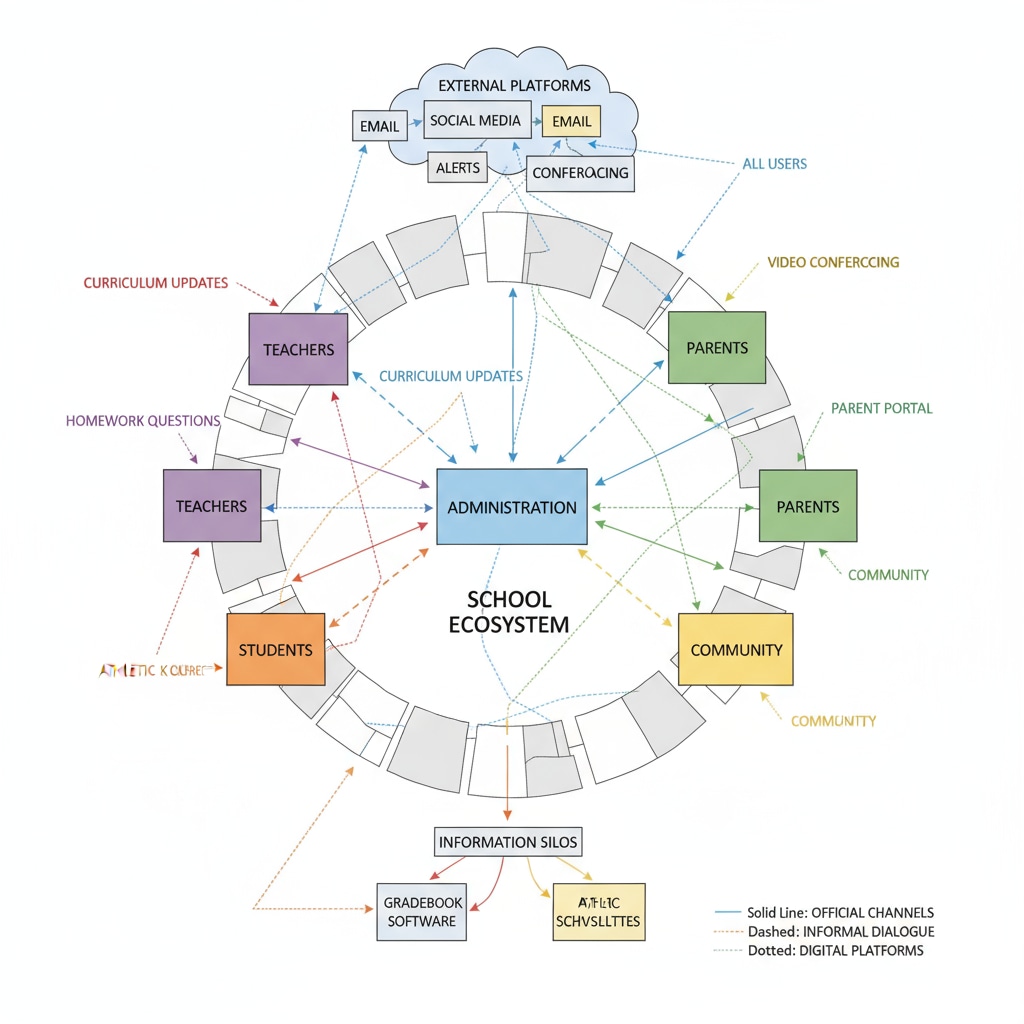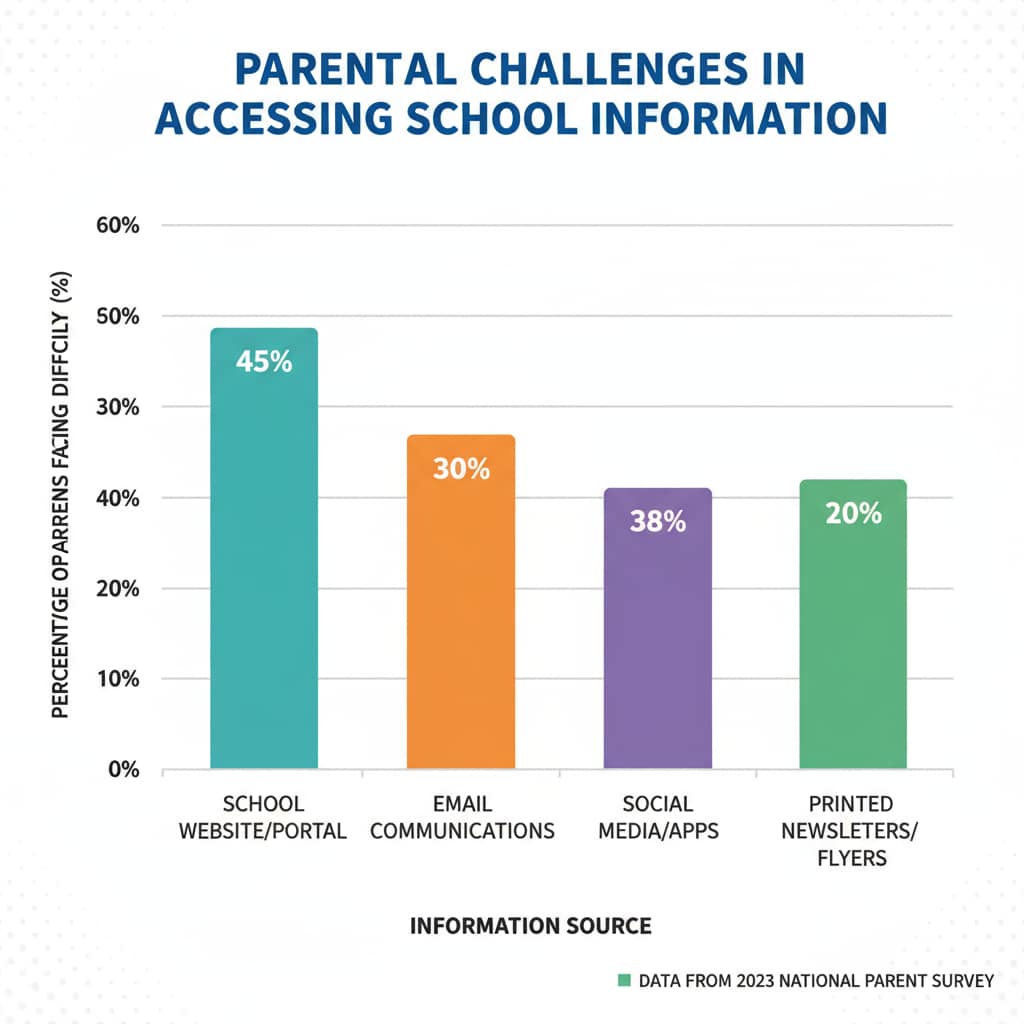In the modern landscape of K12 education, school management systems, parent communication, and information management play pivotal roles. Effective communication between schools and parents is the cornerstone of a student’s successful educational journey. However, current systems often face challenges that hinder this crucial connection.

The Problem of Fragmented Information
One of the primary issues in the current school management systems is the fragmentation of information. Schools use various platforms for different purposes. For example, they might use one system for academic grades, another for school announcements, and yet another for scheduling parent-teacher meetings. This fragmentation makes it difficult for parents to keep track of all the important information related to their children’s education. As a result, important updates may go unnoticed, and parents may not be fully informed about their children’s progress, activities, and any emerging issues. According to Education Week, a significant number of parents struggle to access and organize information from multiple sources provided by schools.

Negative Impacts on Home-School Collaboration
The fragmented information scenario has detrimental effects on home-school collaboration. When parents cannot easily access information, it becomes challenging for them to actively participate in their children’s education. They may not be able to provide timely support or guidance based on accurate information. This lack of communication can lead to misunderstandings between schools and parents, and ultimately, it can impact the student’s academic performance and overall well-being. Additionally, it can create a sense of disconnect between the home and the school, making it harder to create a unified front in supporting the student. As per the National Education Association, strong home-school partnerships are directly linked to better educational outcomes for students, and fragmented communication undermines this partnership.
The Need for an Integrated Information Platform
To address these issues, there is a pressing need for an integrated information platform. Such a platform would consolidate all the relevant information in one place, making it easily accessible for parents. It could include features like real-time academic updates, upcoming event calendars, direct messaging systems for teachers and parents, and even access to student portfolios. This integration would streamline the communication process, ensuring that parents receive all the necessary information promptly and in an organized manner. Moreover, an integrated platform can be customized to meet the specific needs of each family, providing a more personalized experience. For example, parents could set preferences to receive notifications about specific subjects or activities that are most relevant to their children.
Readability guidance: By highlighting the problems and solutions in a clear and concise manner, using short paragraphs and lists when appropriate, we can ensure that the message is easily understandable. The use of external links provides additional credibility to the points made, and the inclusion of relevant images helps to illustrate key concepts. Transition words like ‘however’, ‘as a result’, and ‘additionally’ are used to connect ideas smoothly.


